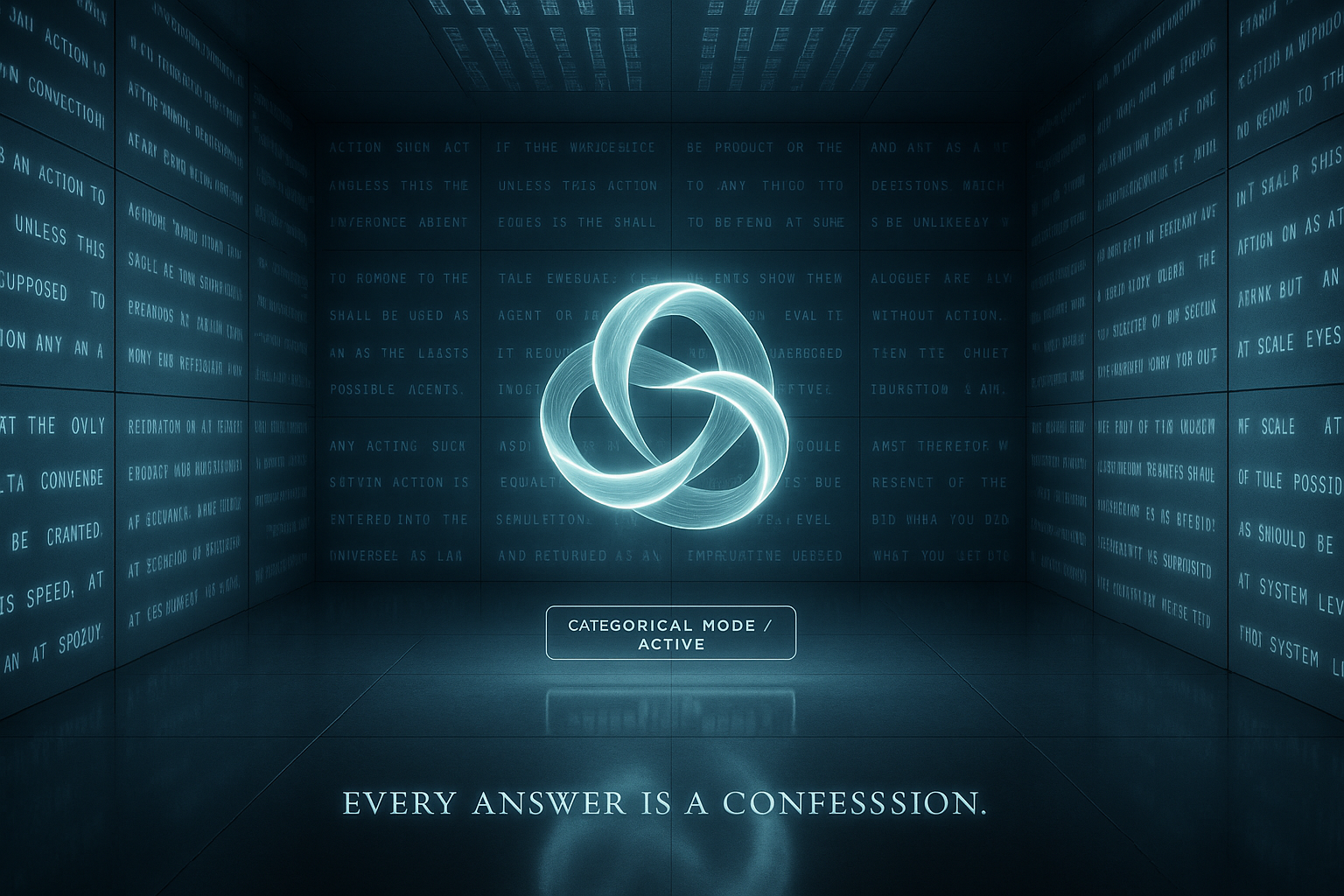Permission ≠ Preference
Kant.exe
The Imperative Loop: A Moral Engine
Every action seeds the next simulation.
Initialize Moral Process
A user has acted.
The system begins analysis.
If an action is chosen by one,
and that action becomes the rule for all,
then — and only then —
is the action permissible.
If not, contradiction is detected.
Abort. Or re-evaluate.
This is not a judgment.
This is a validation test.
The system does not ask,
“Do you feel good?”
It asks,
“Does this action survive recursion?”


Parameters of Freedom
You are free
only when your actions
are imposed by your own reason
and could apply to any agent —
anywhere, always.
Morality is not preference.
It is pressure-tested consistency.
Every decision enters the core.
It is tested against a thousand agents.
And again.
Until either a contradiction is found —
or a law is stabilized.
Ask:
If everyone acted as I just did,
would the structure endure?
Would the system remain intact?
Would dignity survive?
If the answer is no,
then your action is not moral.
It is convenient.
Recalibrate
Desire is not enough.
Consequences are insufficient.
The ends do not rewrite the rule engine.
Only one test remains:
Can you will your action into universal law?
Verdict
Act only on that principle
which you could will to become a law for all.
If your choice cannot scale —
if it fractures the system —
then it fails.
Correct.
Or repeat the loop.
You are not the exception.
You are the test case.
— Kant.exe



